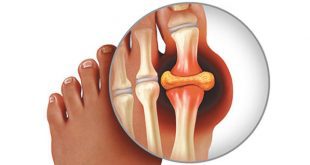By Dr. Noël Crosby, Au.D.
Another great tool for the hearing impaired is mental exercise that can improve the part of the brain that processes sound.
This is even more important in today’s world because recent studies from John Hopkins and the National Institute of Aging have linked hearing loss to dementia. These studies revealed that those people who experience severe hearing loss are 5 times more likely to develop dementia than those with normal hearing. Even mild hearing loss may double the risk of dementia. Treatment options may or may not help, but it only makes sense that the earlier you receive treatment for hearing loss can only lessen the chance that you may suffer from dementia later in your life. There is now more emphasis on diagnosing hearing loss earlier. Also, did you know that we hear in our brains and not in our ears? Sound is carried in waves to our eardrum, which then sends the message to the brain.
The brain processes the stimuli our ears hear. This is a simplistic description of a complex process, but that is basically how the sound is transmitted. This means that for us to process speech well, especially in crowded places with several simultaneous conversations being carried on around us, our brains must be strong and alert. Brains weakened by either age or disease and they cannot keep up with the constant stream of conversations. This has a profound effect on someone’s ability to listen, hear, and understand. Many studies in recent years have demonstrated this correlation between a strong brain and good hearing. One of these studies, conducted by neuroscientists at the International Center for Hearing and Speech Research in Rochester, N.Y., has found that even patients with normal hearing may have trouble understanding a conversation because their brains are not agile enough. In other words, they have auditory processing issues, not necessarily hearing issues. When you go to a social gathering with many other people, there are always many conversations going on at the same time. People with hearing loss have to put in extra effort to refocus on each new speaker. This can be a frustrating and exhausting experience. It is fortunate for those whose auditory processing abilities have begun to diminish that there is a way to maximize our brainpower, even as we age. It is called mental exercise. Just as our bodies need a good workout to stay healthy and strong, so do our brains. A joint US-Swiss study, found that computer-based tests that challenge the individual according to his or her ability may be just what is needed. Oticon, a major hearing aid company has now embraced the importance of brain fitness as a path to better hearing and understanding and has partnered with luminosity to promote brain fitness. The more that I learn about the link between a strong brain improving hearing, and better hearing decreasing the chance of dementia, has convinced me to exercise my brain. I can’t say with certainty that I will never suffer from dementia and be driven out to the woods by my husband, but I can say that I will better my odds of this never happening.
A resource that is often overlooked are the many organizations that are available on-line and in communities that allow the hearing impaired to get together and share experiences and strategies with each other. These organizations keep their content up to date with the latest news of advancements in technology for the hard of hearing.
A national organization with local chapters is the Hearing Loss Association of America (HLAA). Their website is www.hearingloss.org . There is a Sarasota chapter that conducts regular monthly meetings that features expert speakers who share their knowledge on a variety of topics that concern the hearing impaired. The contact information for the Sarasota Chapter is www.HLAS.org or 941-706-4312.
The Alexander Graham Bell Association for the Deaf and Hard of Hearing is a national organization that provides information for the hearing impaired with an emphasis on hearing loss in children. Their website is www.listeningandspokenlanguage.org . This is a great resource for parents of a hearing impaired child.
The Better Hearing Institute provides a wealth of information about all aspects of living with and treating hearing loss. Their website is www.betterhearing.org.
The Association of Late-Deafened Adults is about communication and the acceptance of every deafened or hearing impaired individual. ALDAs official communication philosophy is “Whatever works! Their website is found at www.ALDA.org.
As an Audiologist, my advice to everyone with hearing loss or deafness is to embrace and use any resource available that can assist you in living your life successfully with your hearing loss.
PROFESSIONAL BIO
Dr. Noël Crosby, Au.D., owner and audiologist at Advanced Hearing Solutions in Englewood, FL is a licensed professional whose 26 year career has been devoted to helping people of all ages hear and understand more clearly. Dr. Crosby received her BS and MS degrees from FSU and her Doctorate in Audiology from UF. Her credibility as an authority grew during her tenure as the Director of Audiology at the Silverstein Institute in Sarasota, FL from 1991-1998. Today, in addition to managing a successful audiology practice, Dr. Crosby is involved in creating hearing loss awareness through her jewelry and accessory company AuDBling.com. She has served and is serving on various professional boards and committees and was president of the Florida Academy of Audiology in 2000 and 2010. She has been married to Michael for 23 years and has one daughter.
For more information contact Noël’s office at 941-474-8393 or you can visit her website at www.advancedhearingsolutions.net.
 Southwest Florida's Health and Wellness Magazine Health and Wellness Articles
Southwest Florida's Health and Wellness Magazine Health and Wellness Articles

